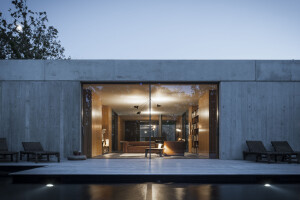A Farm House Restored with a Touch of Contemporary Elegance Celebrates and Preserves the History and the Livability of a 200 Year Old Loyalist Hamlet in the Eastern Townships
ADHOC Architectes continues to build the story of a house from the loyalist era in the hamlet of Denison Mills in the township of Shipton
This is the story of a small hamlet in the Eastern Townships, which was developed by an American family and is bordered by the first road that linked Quebec City and Boston. At its height, the small hamlet had a population of 150 inhabitants. Nearly 200 years after the Denison family settled in the hamlet that still bears their name today, ADHOC Architectes is restoring and adapting the annex of the farm house built by these loyalist settlers from the township of Shipton to meet the growing needs of a new family.
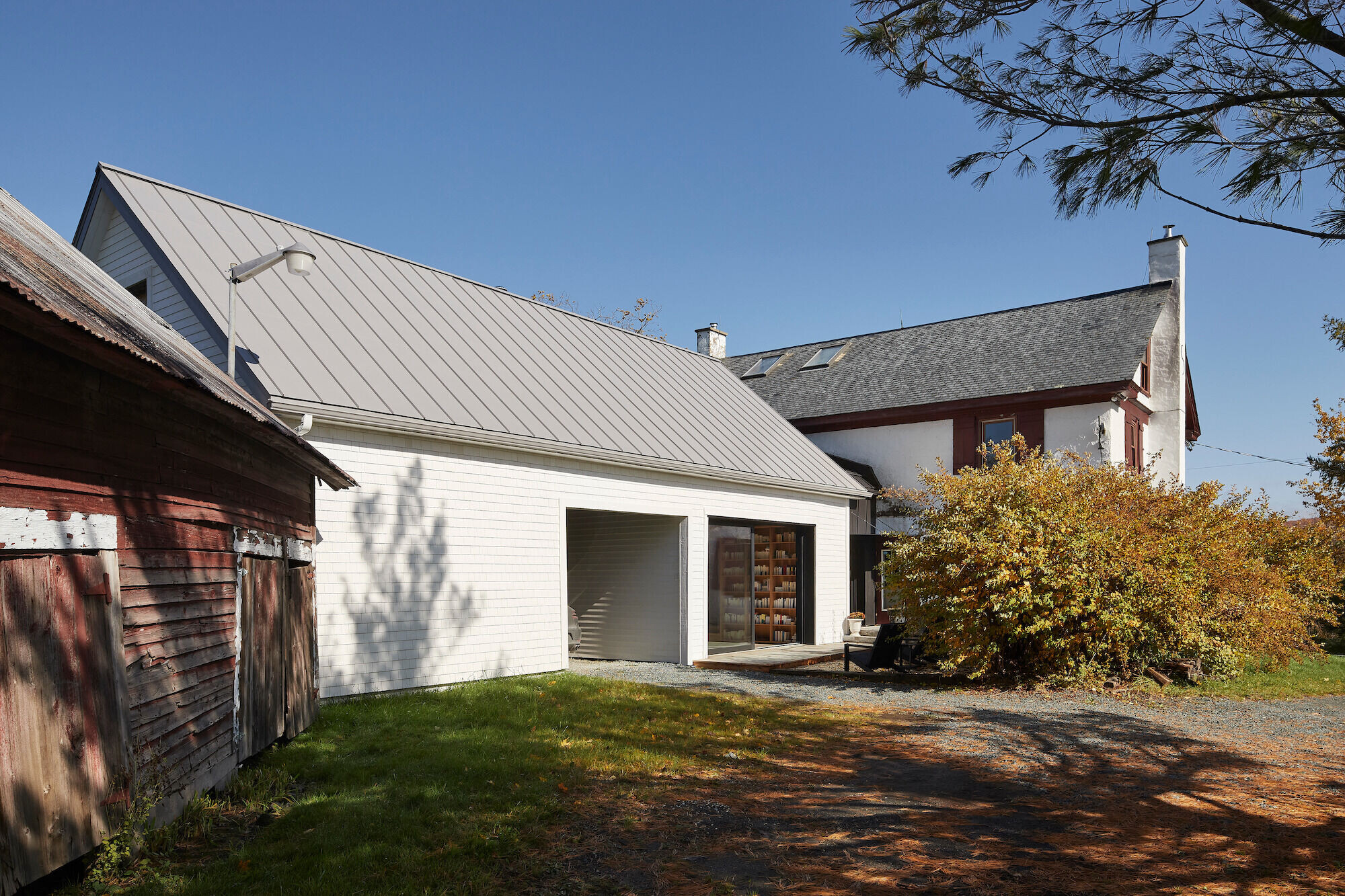
The hamlet of Denison Mills: A first-rate environment in terms of the history and architecture of the Eastern Townships
Denison Mills is located between the municipalities of Richmond and Danville, in the former township of Shipton. It is accessed via Route 116, which was once part of Craig Road. This historical road, built by 400 soldiers after the British conquest to connect Quebec City to Boston via Stanstead, facilitated trade and the settlement of the townships that had just been created.
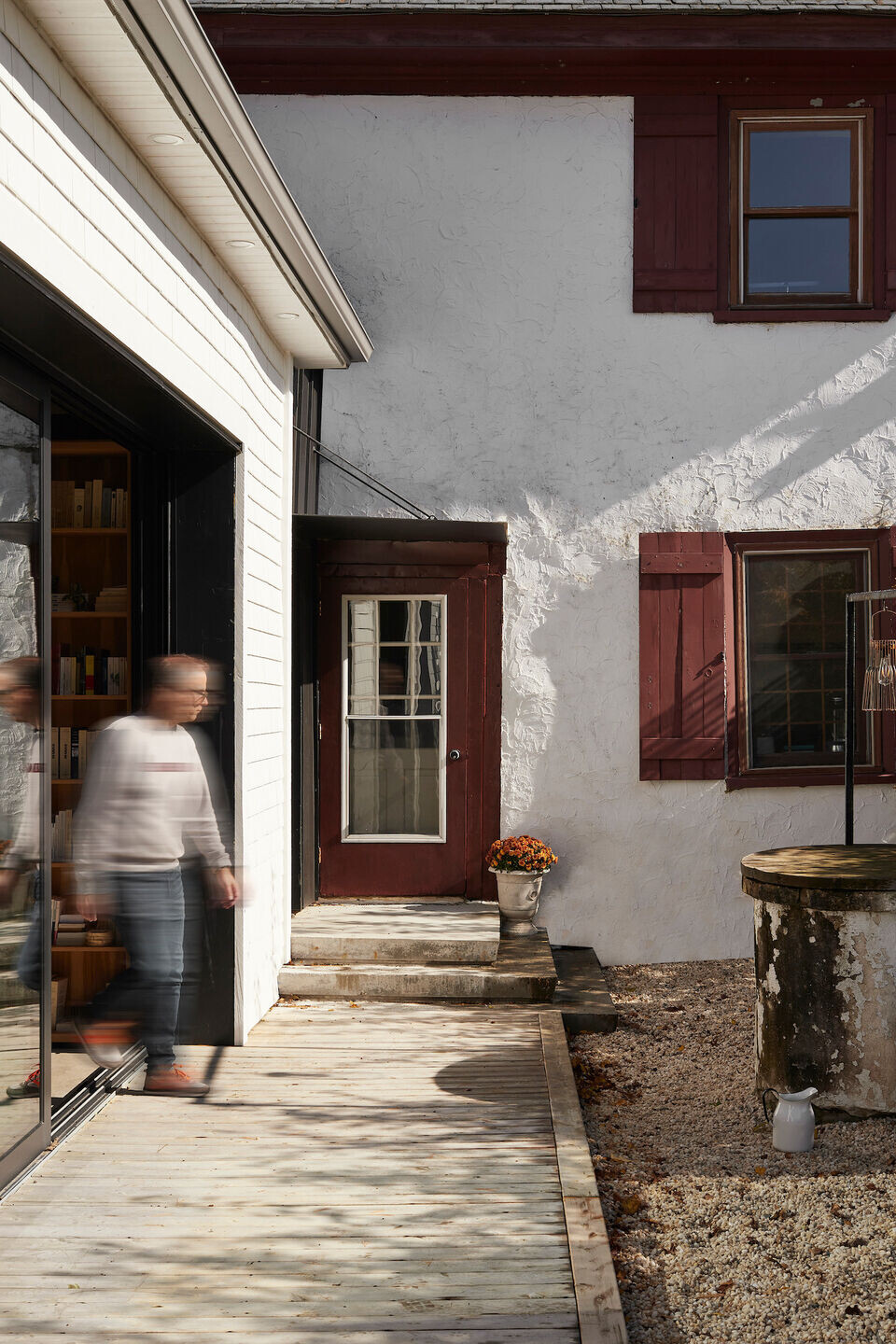
Originally from Connecticut, the Denison family was attracted by the immigration policies of Lower Canada, settling in the area located 100 km north of the American border in the late 1790s. Farmers, then millers thanks to the construction of a flour mill, the Denisons were landowners who quickly became prosperous and made significant contributions to the development of a community which, at its height, included a school, a general store, a post office, and a chapel. Although the hamlet experienced an economic and then demographic decline, the descendants of the Denison family continued to live there until 1980.
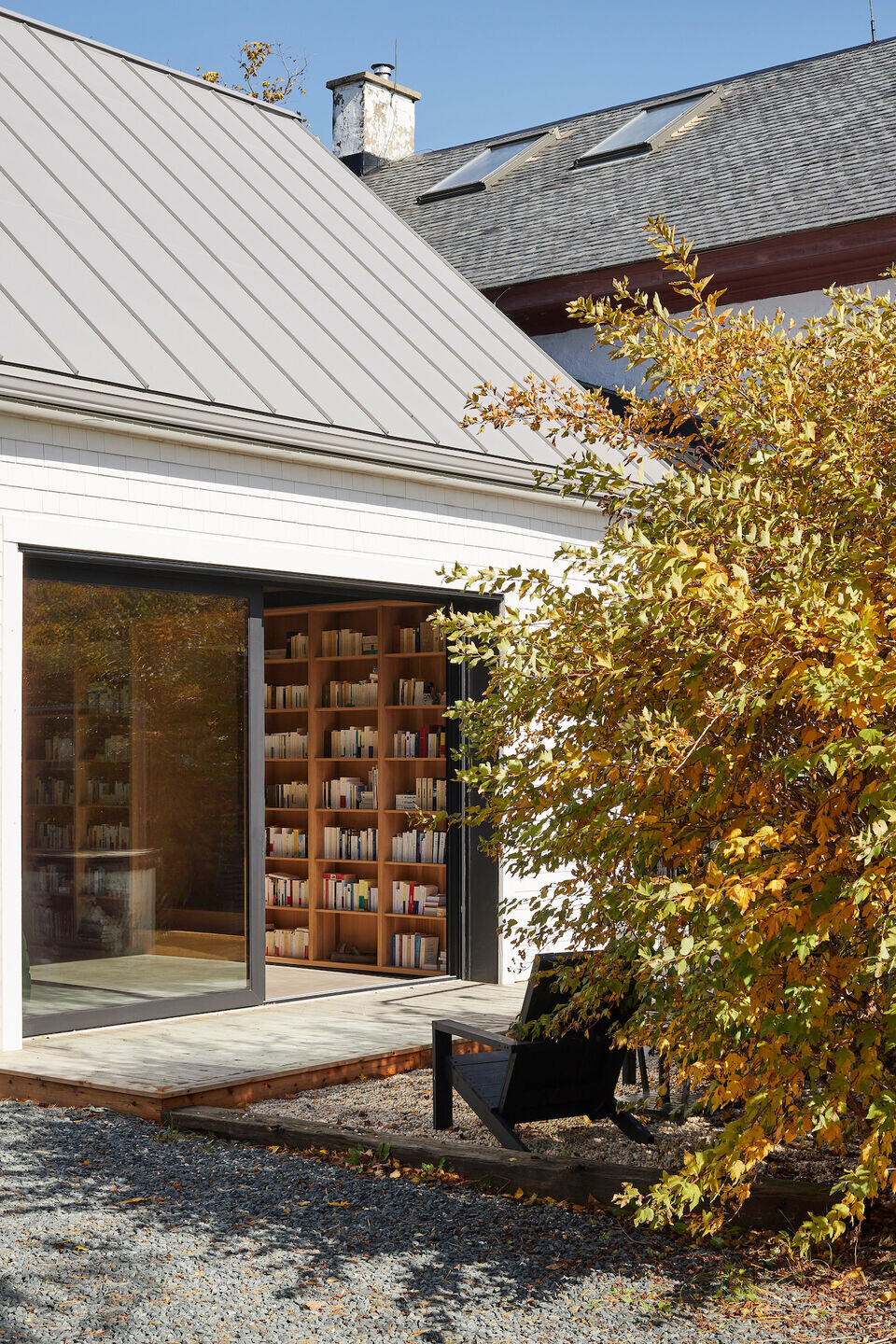
Denison House, one of the last vestiges of an era
Today, only four buildings still bear witness to these first phases of occupation - the flour mill, the Anglican chapel, and two residences having been occupied by the Denison family. Remaining in operation until the 1960s, the Denison mill was classified as a heritage site in 1973 by the Ministry of Culture and was subsequently transformed into a private residence. The restoration project carried out in the 1980s by the new owners was seen as a great success at the time.
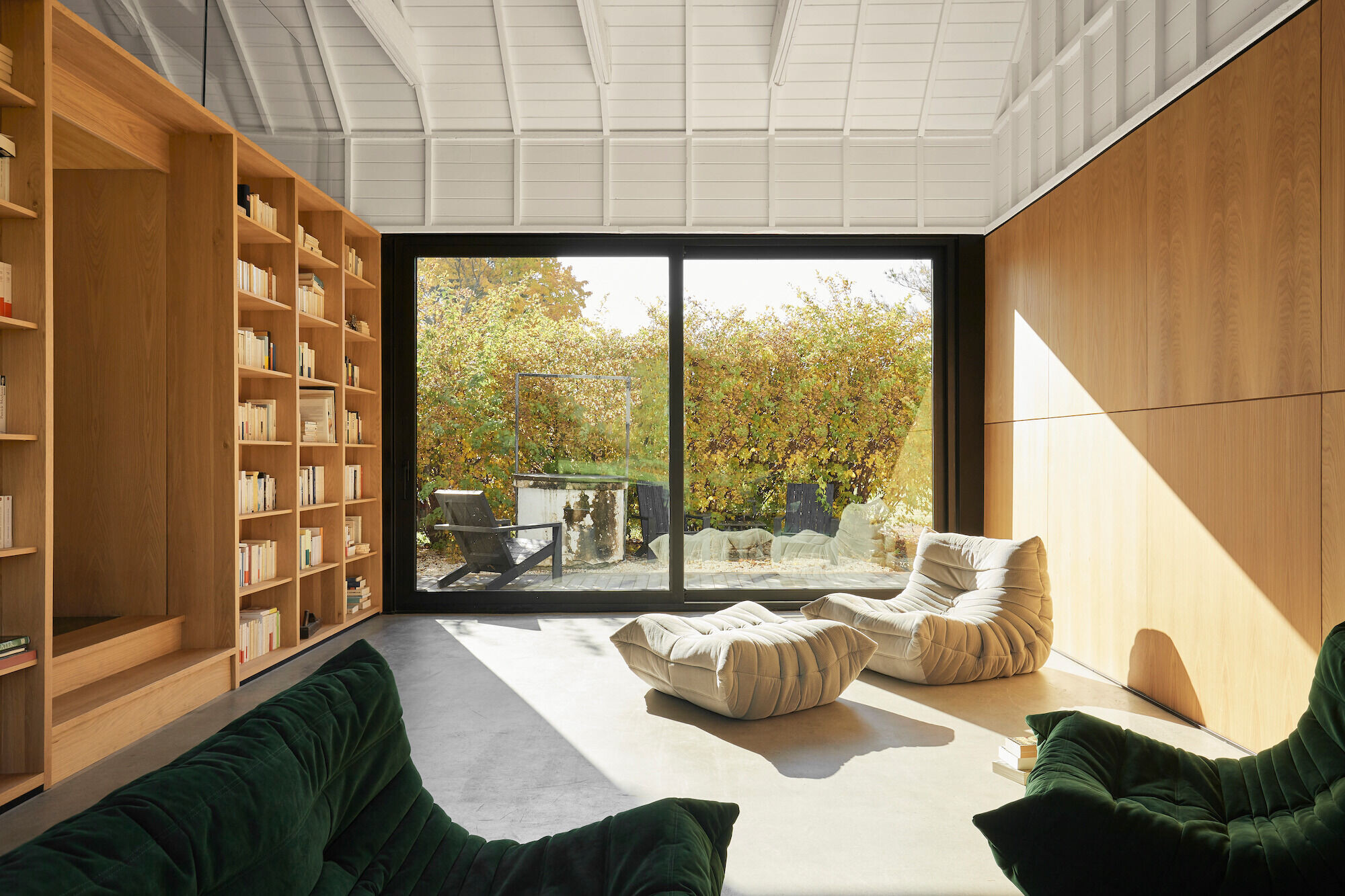
A new piece of history is being built in the hamlet 50 years after the heritage protection classification of the mill. The project carried out by ADHOC Architectes is located 250 meters from the flour mill, where another historic building stands: the large stone house occupied by the owners of the mill. Built in 1831 by Simeon Minor Denison, the house was the Denison's home until the 1980s. The new occupants, a couple with a passion for history and literature, settled there in 2006 with plans to raise their three children there.
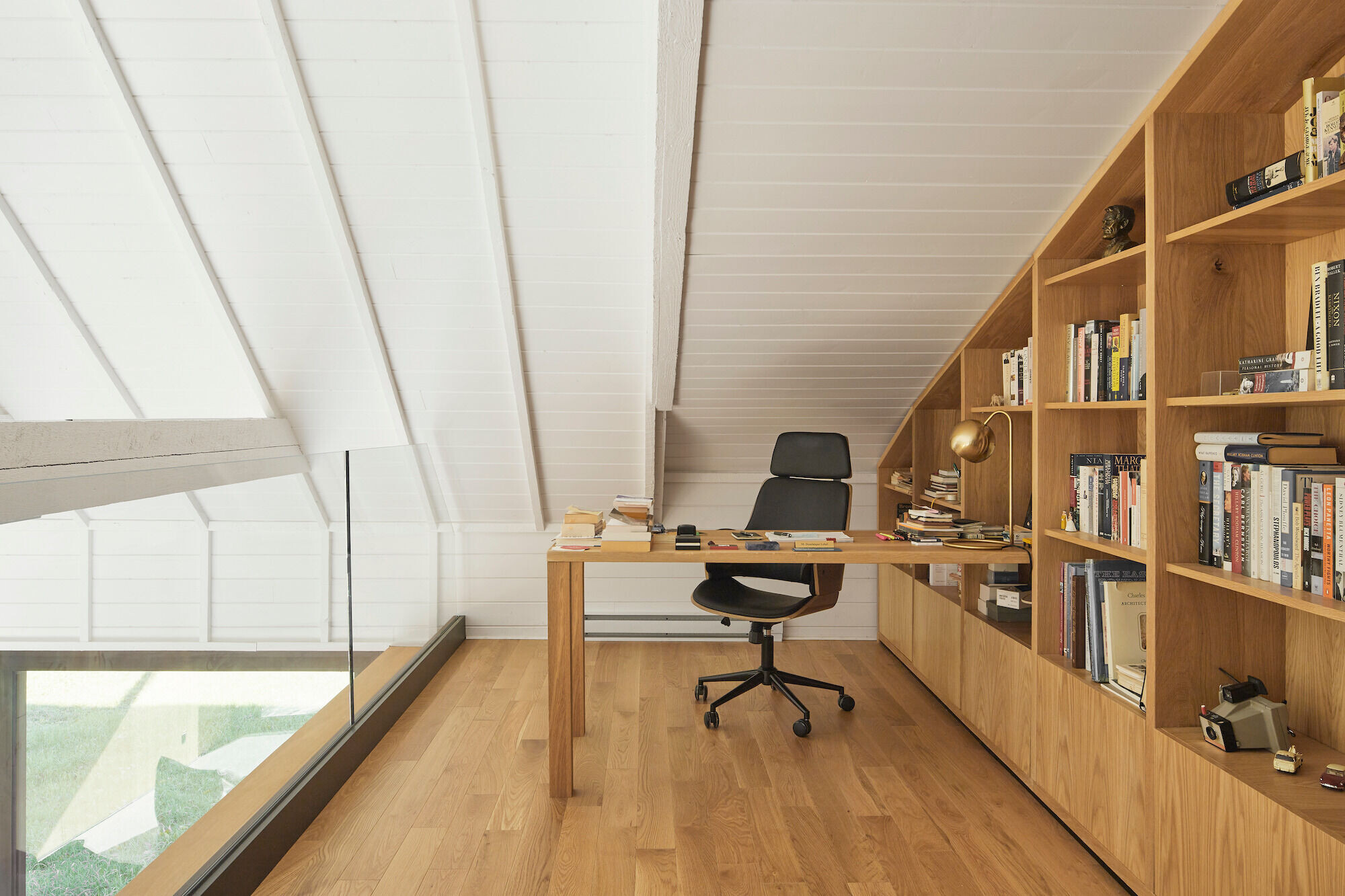
Preserving rather than demolishing architectural heritage: a choice in favor of sustainable development
ADHOC Architectes was given the mandate to carry out a new contemporary renovation for this almost bicentennial home, respecting the historical heritage of the place. The clients sought to increase the square footage of their living spaces by converting a historic outbuilding of the house into a library open to the surrounding landscape, as well as an office space, garage, and future dormitory. ADHOC architectes’ intervention to this home in the heritage sector of the MRC of Val-des-Sources provides a new peaceful and charming place that fits seamlessly into its context, giving the impression of having always been a part of it.
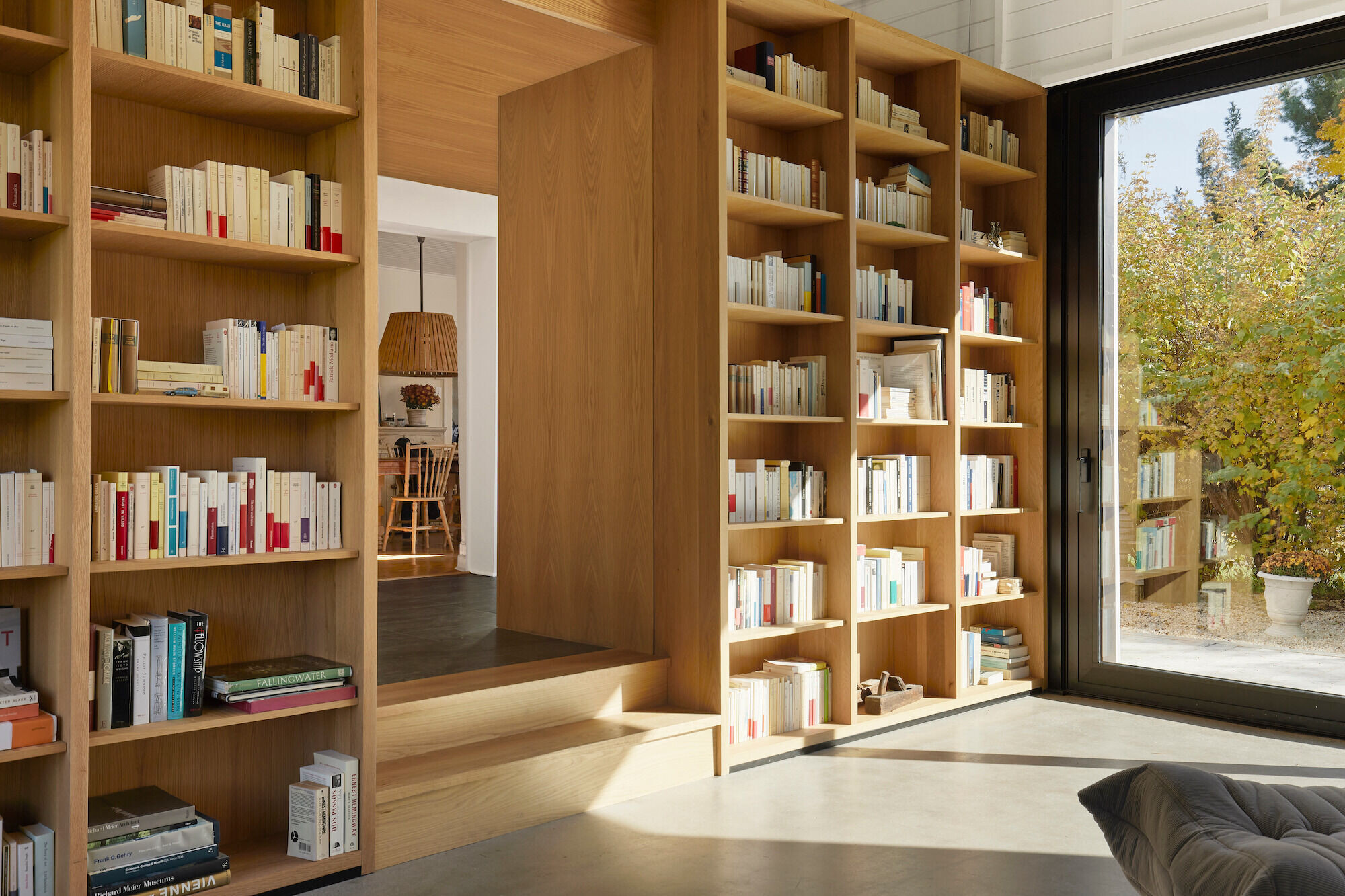
“Denison Mills and the Denison House are rich with history. We considered for a long time about what we wanted to do with the annex of the house. Through research, we learned that this outbuilding at the back of the main house served as a large summer kitchen, and in which meals were served for the thirty or so people that the Denisons hired at harvest time. We want to reinvent these activities, and to adapt them to our current needs, while maintaining the grounding nature of this almost bicentennial building in the landscape. ADHOC Architectes presented us with a concept that respects our desire for preservation, while offering us the ideal setting to bring our passions for history and literature to life," underlines Dominique Lebel, co-owner of Maison Denison.
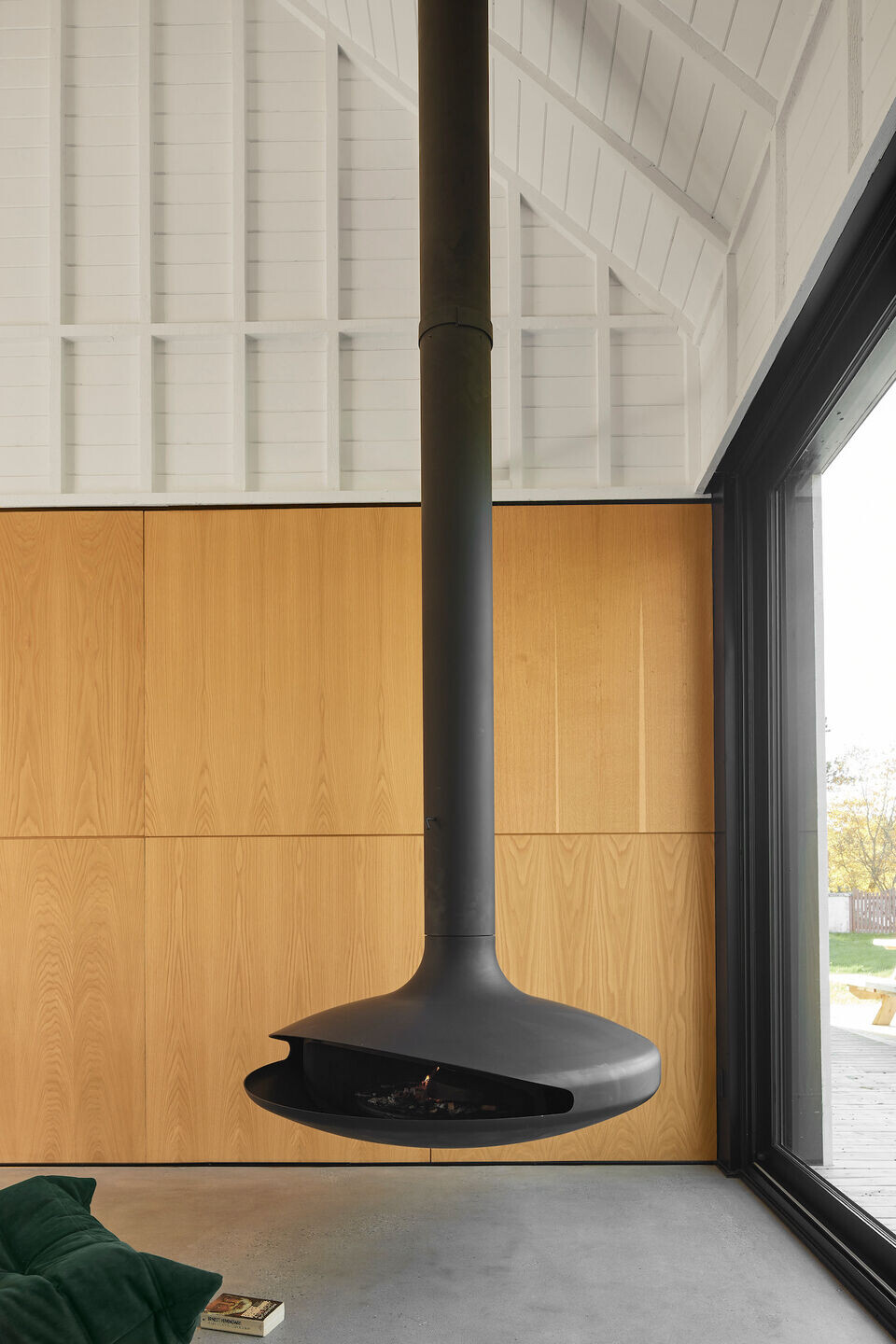
Beyond the sensitivity to the architectural heritage, the reuse and development of the existing building was deemed more ecological than demolition and reconstruction. Once the decision was made to preserve the structure, the architects reinforced it with salvaged hemlock beams. Hemp wool, an ecological material produced locally in Val-des-Sources, was chosen for the insulation of the building. For the roof, the architects chose sheet metal for its durability.
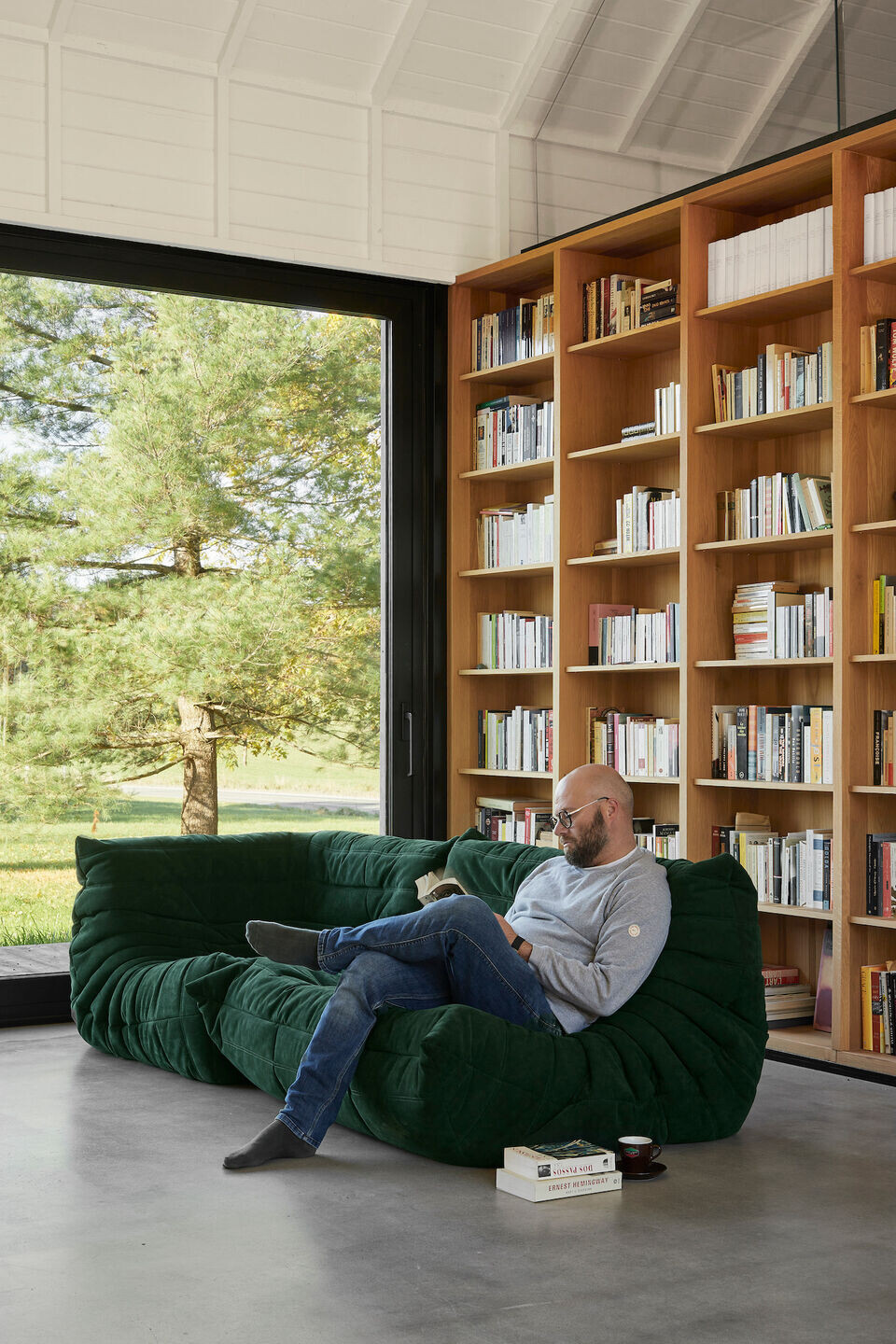
“While some historic buildings built in Quebec are falling into disrepair and see their future uncertain, the owners of this bicentennial residence have chosen to renovate, rather than demolish and rebuild. The Denison project thus pays homage to the regional character of ancestral farmhouses, while adapting them for today's needs,” says Jean-François Saint-Onge, creative director and partner at ADHOC Architectes.
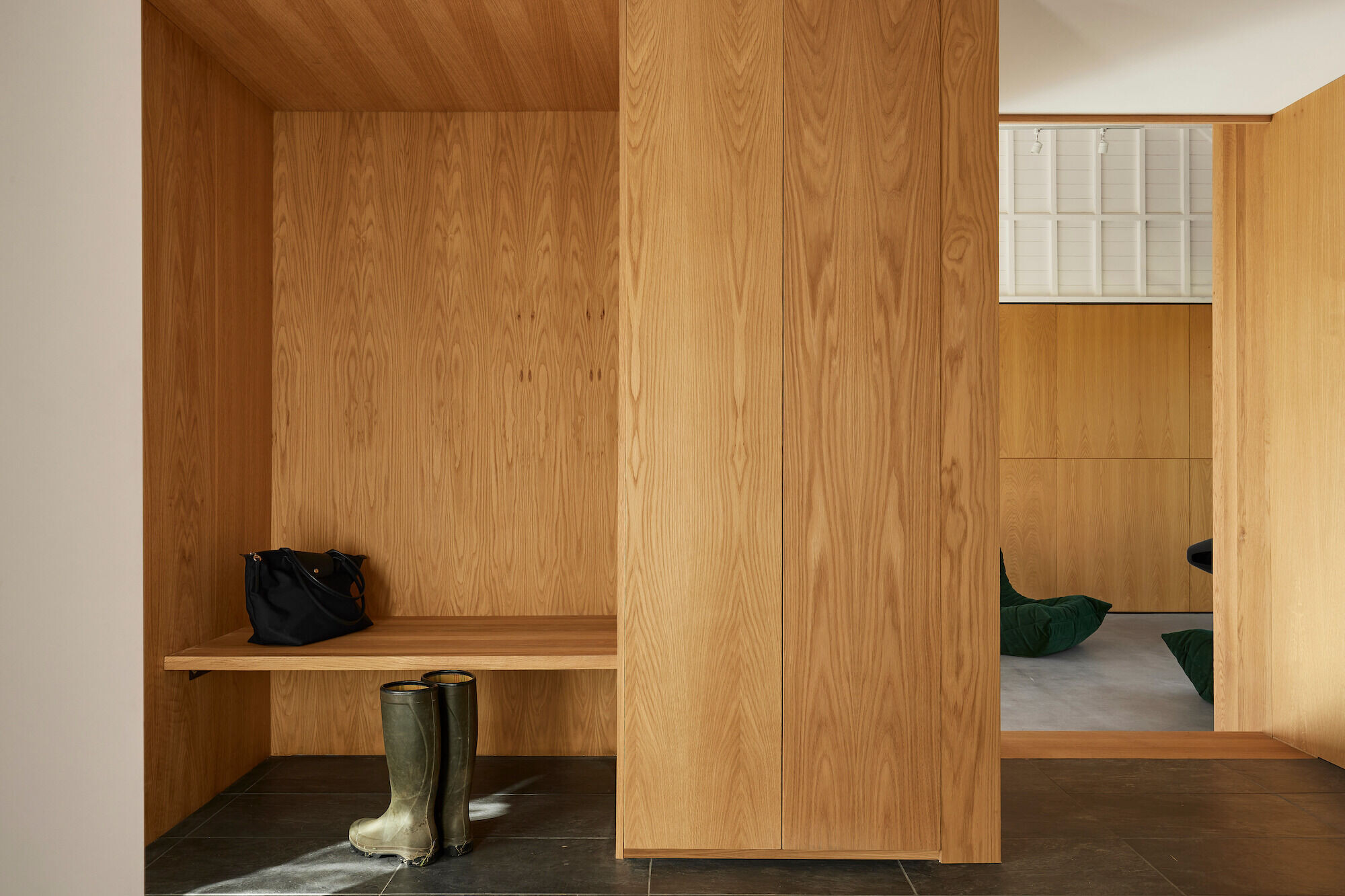
Open up and adapt a site to an agricultural past
In the 1830s, the builders of the main stone house sought, above all, to ensure its thermal comfort. The landscaping of the site, dedicated to agricultural activities, was designed to optimize its productive value, rather than to highlight its bucolic side.
The gradual addition of annex buildings to the stone house thus created a patchwork of architectural volumes that progressively split the 83-acre site into two distinct parts.

To reconnect the new residents with the surrounding landscape, the architects created openings to integrate large windows on either side of the building. On one hand, these open up providing access to the outdoors for the occupants to enjoy during the summer. On the other hand, during colder months, they bring in natural light and allow contemplation of the surrounding rolling terrain composed of agricultural land and forest.
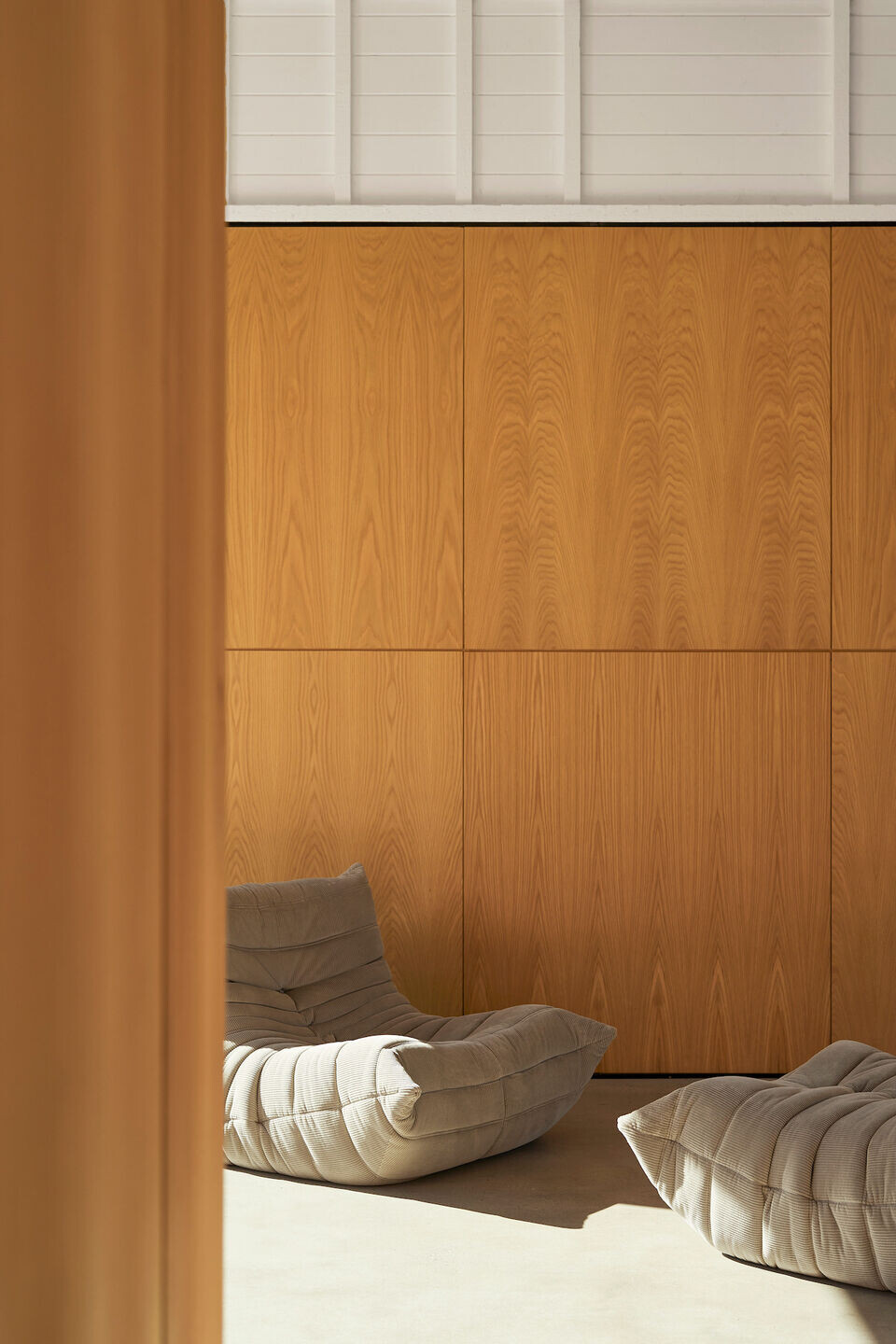
Creating a dialogue between the eras with a minimalist intervention
Like a landscape evolving over time and marked by the years passing through it, the volumes that make up the residence subtly express the contrast of the eras to which they belong. For the exterior cladding of the annex, the architects used cedar shingles and clapboard painted white. Added to the roof of the annex is a metallic material in gray steel with a beaded sheet metal effect, and a black awning for the transition space between the houses. The result creates a harmonious palette of materials and colors on the site.
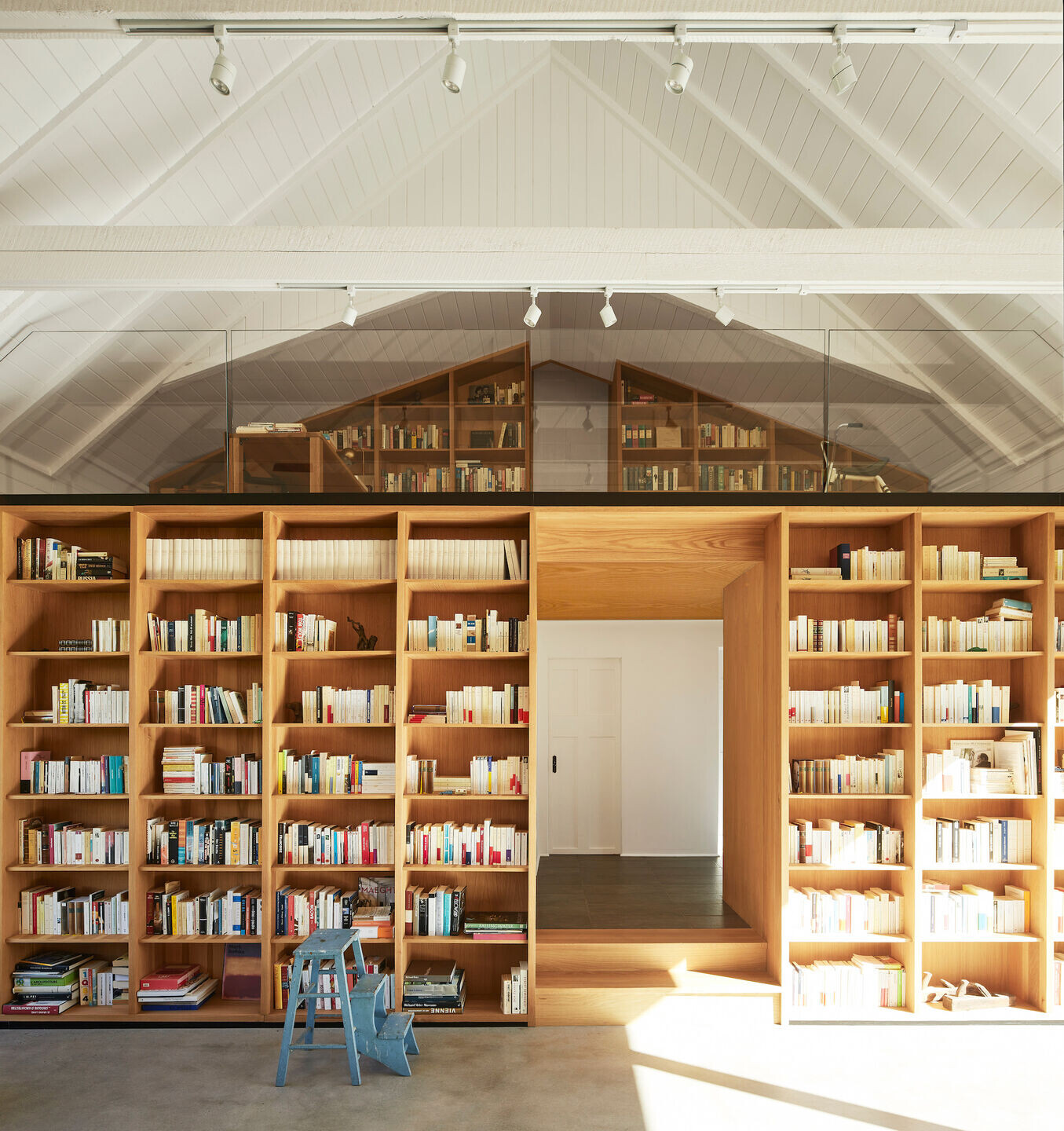
The annex has always been connected to the stone house, even if its placement is not perfectly perpendicular. ADHOC Architectes reworked the space connecting the two volumes, maintaining the existing openings in the three-foot-wide walls of the Denison House in their entirety. An exterior entrance was repositioned to consolidate the whole.
On the ground floor, this connecting space has been redesigned as an entrance vestibule, separating the existing spaces of the house and the new contemporary spaces created in the annex. The architects considered the interplay of heights and chose materials to create a harmonious transition. For example, the slate floor in the entrance vestibule is a historic nod to the old quarries of Shipton Township, as well as to the house's exterior cladding.
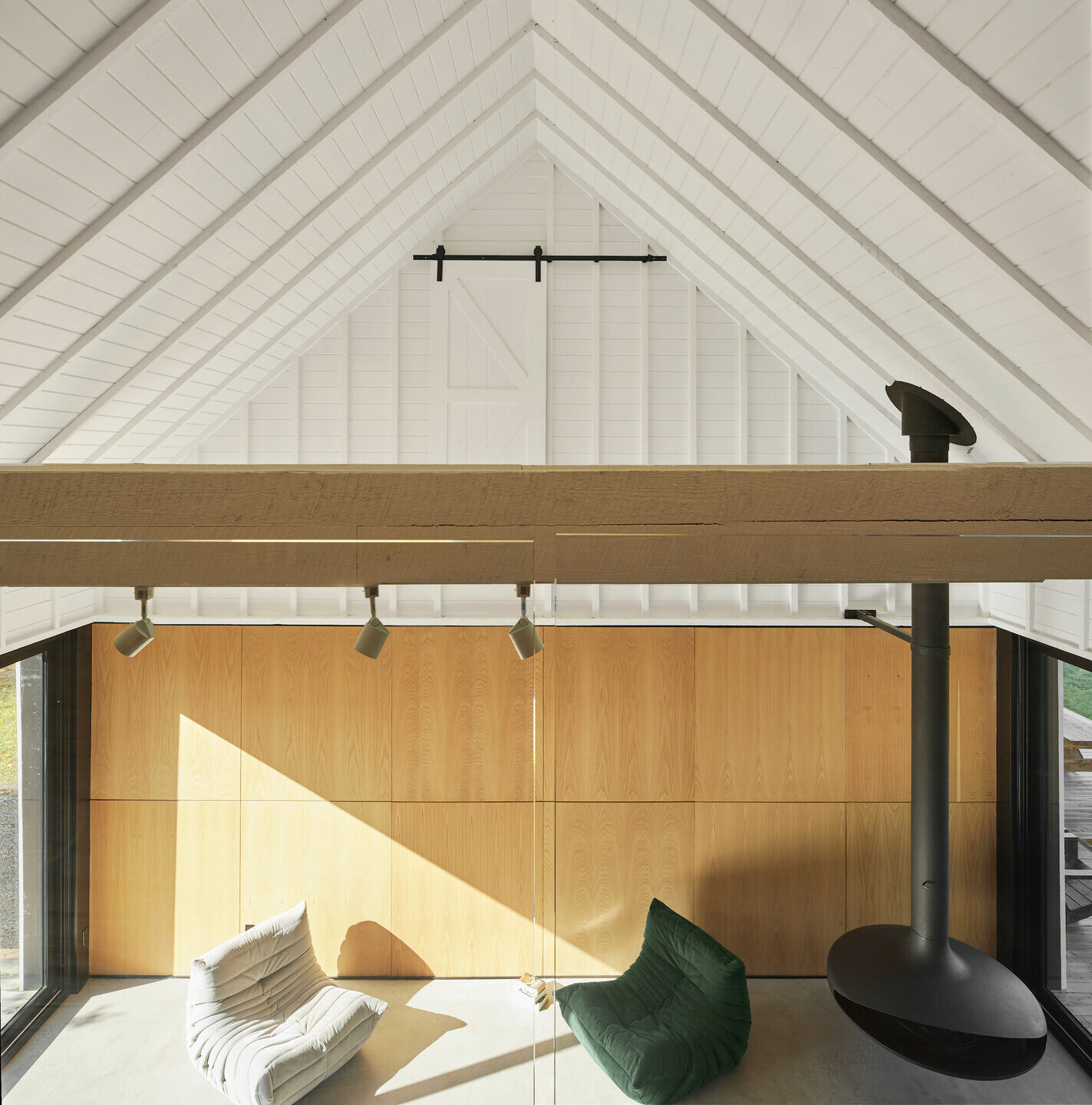
Expanding the interior of the annex of a farmhouse
The renovation of the building results in a new living space transformed into a place dedicated to literature, which consists of a modular winter reading room, as well as an office overlooking the space.
The first stages of the intervention consisted of rectifying the building, which had sagged over time by reusing and reinforcing the existing structure.
The use of the full height of the cathedral ceiling helps to add volume and diffuse light throughout the room.
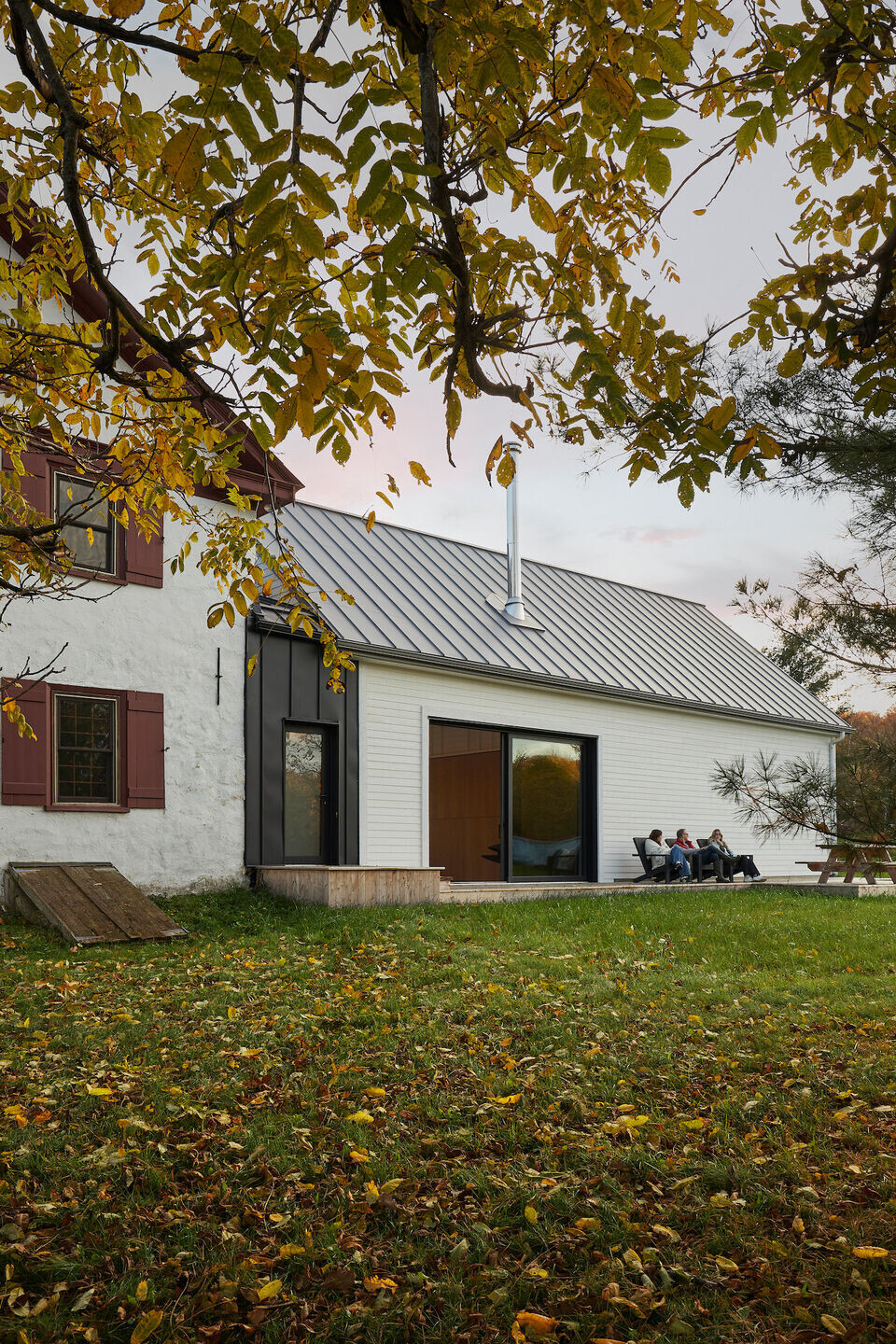
The application of a mixture of sober, natural materials, with wood chosen in neutral tones, gives a harmonious, contemporary, and nevertheless timeless character to the room. The millwork installed along the walls, veneered in local white oak wood, are done in the book match style of the 1970s, and are contrasted by a polished concrete slab. Upstairs, the ceiling is made of wooden laths, painted white, and is supported by exposed beams to add a more rustic touch.
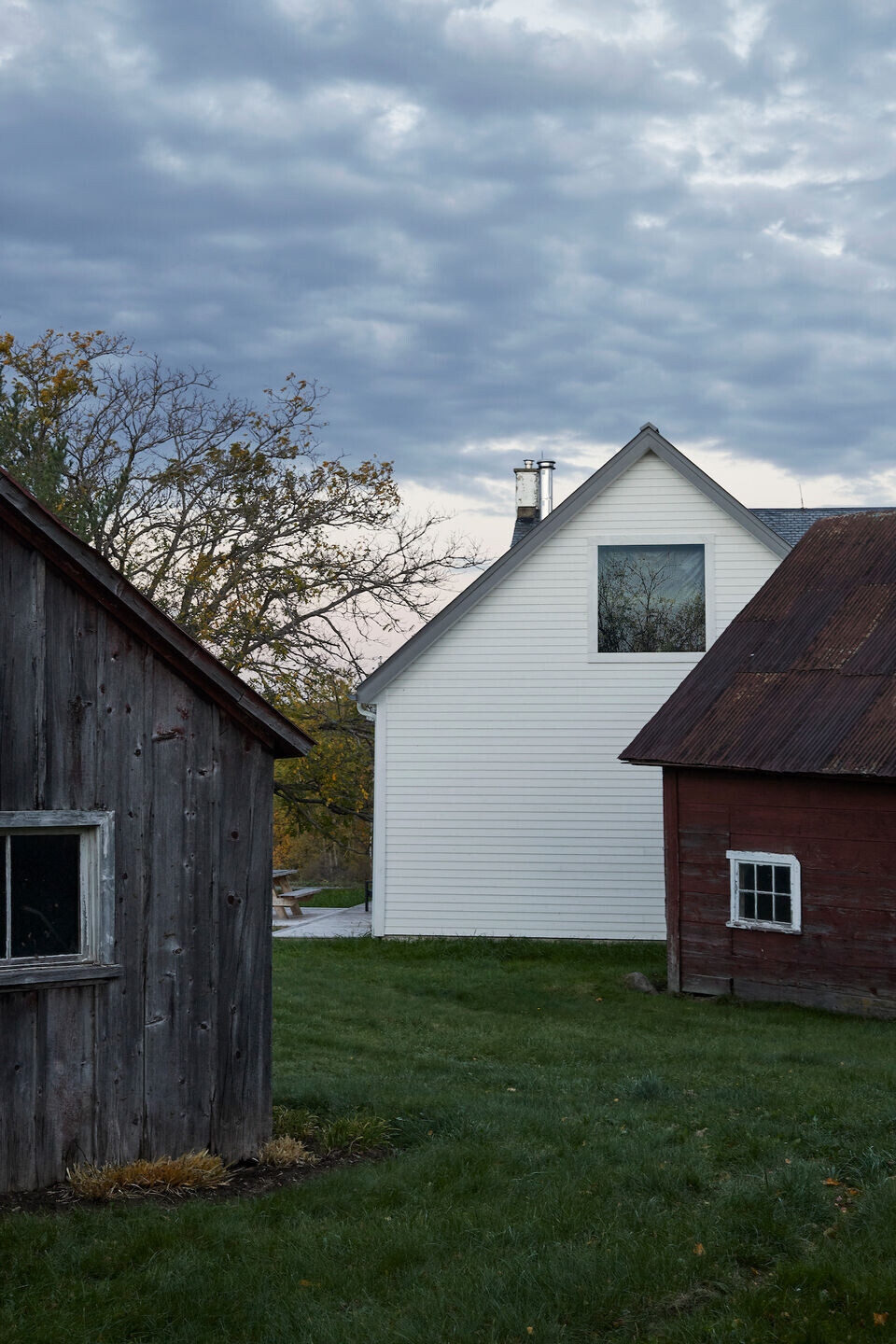
The other part of the building houses a garage, where the clients are planning to eventually create an upstairs dormitory space to be used during large family reunions.
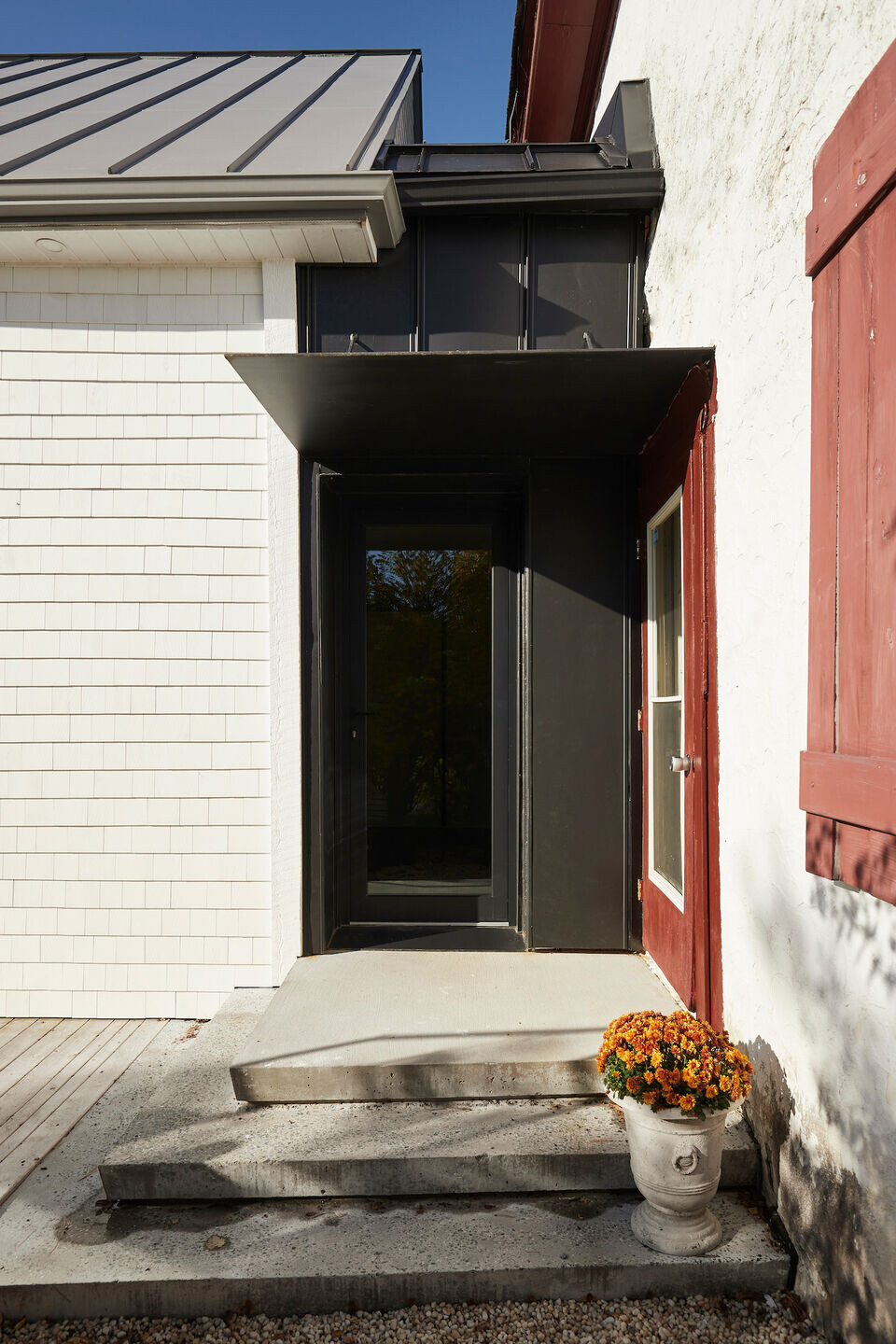
All in all, this project unites ADHOC Architectes' philosophy of architectural preservation, conserving the context’s heritage with Dominique and Valery’s love for history and literature. These common values have allowed them to add their mark to the building and to write, in turn, a page in the history of Maison Denison. One thing is certain: with the good care of Dominique Lebel and Valery Pigeon’s family, the Denison site has a bright future ahead of it.
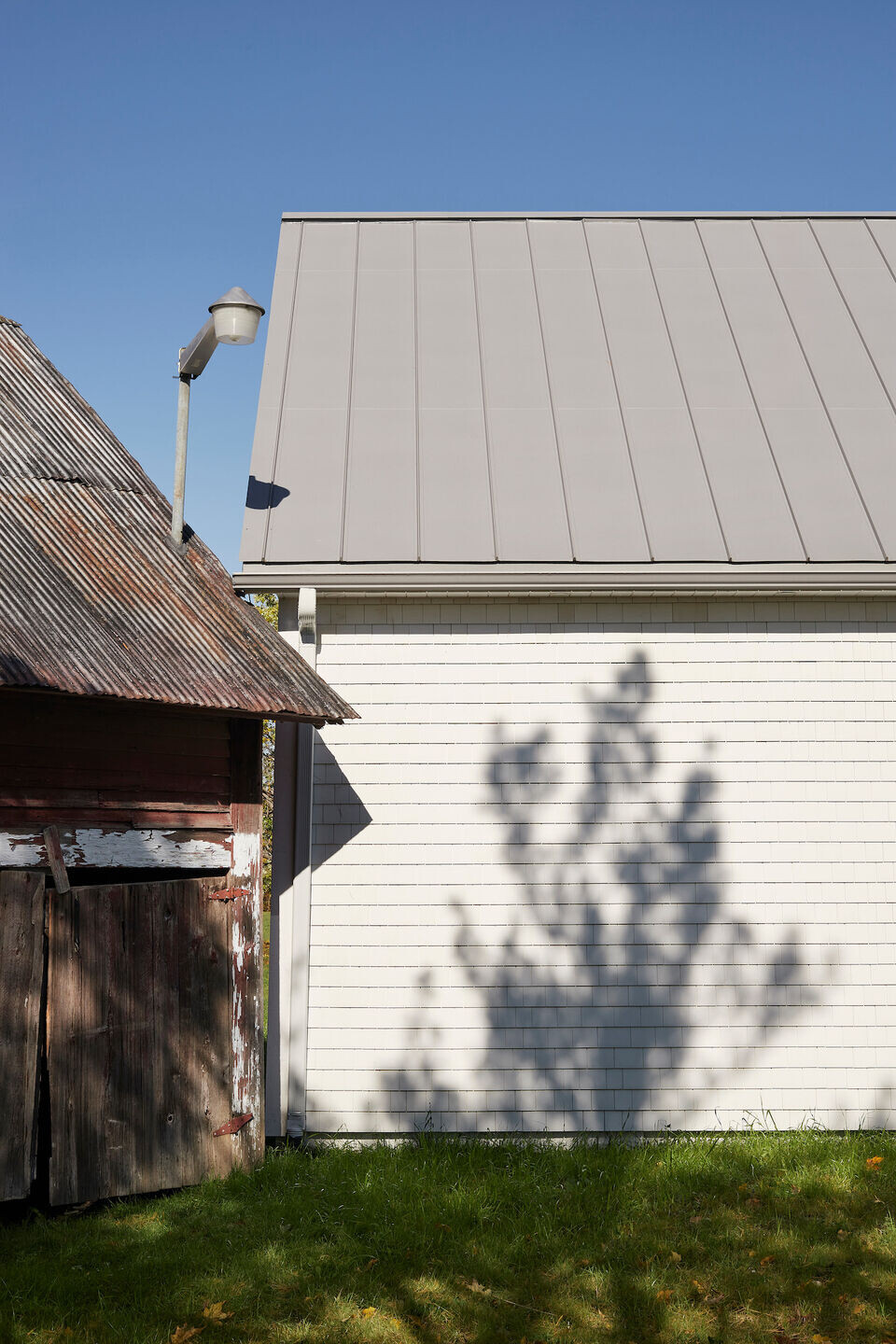
Team:
Client: Dominique Lebel & Valery Pigeon
Architect: ADHOC Architects
General contractor: Constructions Namasté
Structural engineer: Ma-Th
Photo credit: Maxime Brouillet



































